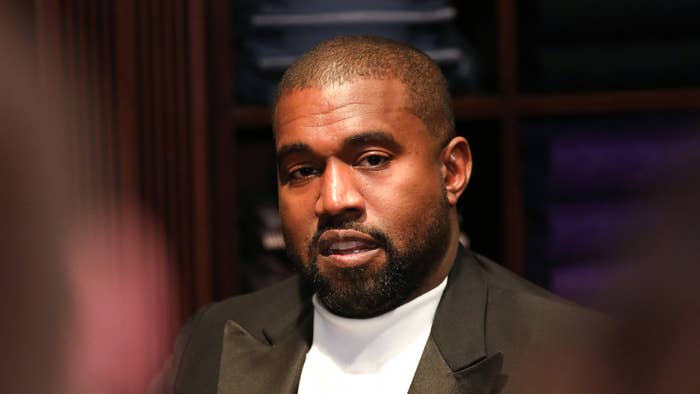
On Wednesday, Kanye West’s Twitter account briefly turned into a law clinic. The volatile mega-star capped off a series of tweets about the state of the music business and the importance of artist ownership by tweeting out 114 pages of his record contracts. In the melange was everything from a 2005 renegotiation with Roc-a-Fella to details of Watch the Throne and Cruel Summer to the structure of G.O.O.D. Music. We read through everything so you don’t have to. Here’s what we learned.
Kanye goes over budget a lot
Kanye has been spending more money than the record label allows since the very beginning of his career, when he famously took $35,000 of his own money to make a video for “Through the Wire.” That trend continued, though the dollar amounts got much larger.
A March 2013 memo makes it clear that Yeezus went a little more than $1.5 million over budget, and a letter from the year before says that the Cruel Summer movie (the one that took seven screens to view) also cost $1.5 million more than was initially planned. The Cruel Summer album also went over by $1.3 million.
Paris is expensive
When making Yeezus, Kanye decamped to Paris for a few months in 2013. Between January 1 and March 10 of that year, the label spent about $493,000 on recording costs. That works out to about $7,100 a day.
He made a lot of money
Money, Kanye would surely argue, can never replace ownership. And, with rare exceptions, payment from a record company is a kind of loan: You must make the label that money back before they can start paying you again. But even with all of that, Kanye made a lot of money over the years.
For example, Kanye got a $12 million pool of money to make Yeezus. Two-thirds of that, $8 million, was an advance for him to keep. The rest was for recording costs, sample clearance, and other costs involved in making the album. That was a big jump from Late Registration, where he received a $2.3 million advance, with an additional $1.2 million as a recording budget. With Watch the Throne, Kanye got a $1 million advance (there’s no record of how much Hov received) and a $1.5 million budget. In the recording budgets, there was almost always a clause where Kanye could keep whatever money was left over at the end of the process. But, as we’ve seen, it seems unlikely that ever happened.
Surprisingly, Kanye’s May 2012 deal for his sixth and seventh albums said that the record which would become The Life of Pablo would give him a $3 million advance and a $3 million budget, significantly less than Yeezus. However, it’s unclear if those terms remained or were later renegotiated. In that same month, Kanye made a deal with Island Def Jam for G.O.O.D. Music that got him an additional $3 million free and clear, as well as a significant budget for the label.
There were also six-figure sales bonuses, including $500,000 if Late Registration went triple platinum within eleven months of its release (which it did) and $750,000 if he delivered that album to the label on time.
There are lost ‘Yeezus’ tapes (maybe)
Buried in a fairly long and boring outline of a so-called P&D (production and distribution) deal, there’s an interesting tease. In addition to a new album after the release of Yeezus, Kanye is given the option to release an album of “previously recorded, unreleased” songs, which the contract tentatively titles the Lost Yeezus Tapes. Obviously, this never happened and Ye went straight on through to TLOP. But the mere mention of lost music from the Yeezus sessions has given hope to Kanye obsessives everywhere that such recordings actually exist and may see the light of day in the future.
Record contracts are strange
There are a few strange clauses buried in the 114 pages. There’s one that says if Kanye violates “applicable legal standards” in promoting his record (i.e. if he engages in payola), the label has the right to terminate his contract. There’s another in his 2005 Late Registration-era deal saying that Ye has to do “a reasonable number of on-line ‘chats’” on his website.
Kanye can (possibly) own (some of) his masters (eventually)
The need for ownership of his master recordings (read more about that here) is Kanye’s driving force on this quest. His early deal makes clear that his masters “Shall be entirely [Roc-a-fella’s] property…., throughout the world and in perpetuity.” But by 2012, things have started to look up a little, sort of. He has the option to own the masters for his sixth and seventh albums, but not until 20 years after the projects were released (and provided that he gives them all the albums he’s under contract for). At that point, he can get it back for free if he’s recouped (made back for the label the money they spent in creating and marketing it), or he can buy it back for the amount of unrecouped money that still exists. So come 2036 or so, be on the lookout for a special edition of The Life of Pablo.

